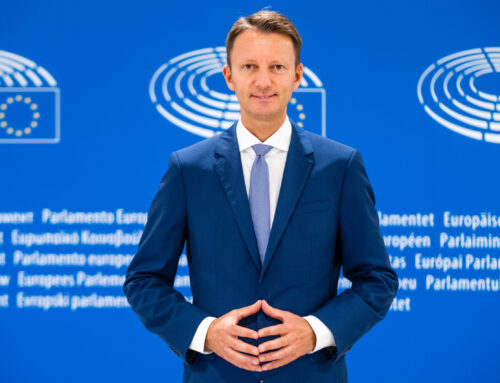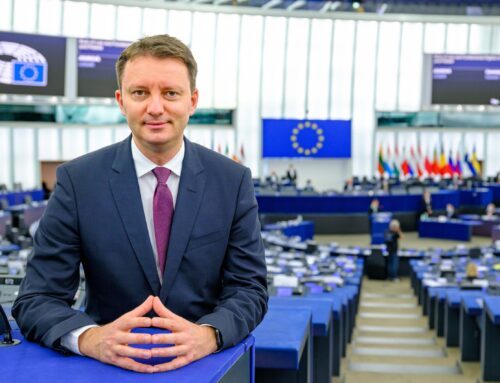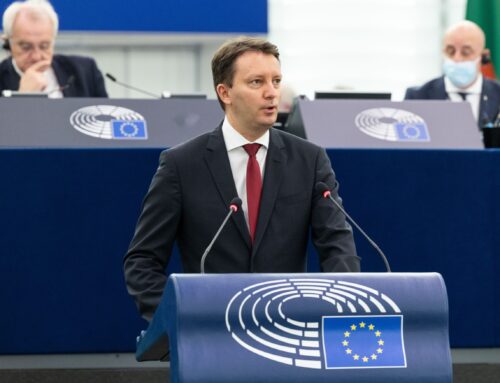Romanian MEP Siegfried Muresan has submitted to Business Review an opinion about the strategic investment fund designed by the European Commission, which could help Romania develop key projects in sectors such as infrastructure and energy.
At the end of 2014, the investment gap in the economy of the European Union amounted to as much as EUR 800 billion. As we know, the impact of an investment gap upon any real economy is less growth, less competitiveness, less jobs and higher economic instability. Whilst needing more investments into the economy, EU Member States cannot afford more public investments, due to high levels of public debt and high yearly deficits.
Against this background, the European Fund for Strategic Investments (EFSI), initiated by the newly elected president of the European Commission, Jean-Claude Juncker, emerged in November 2014. Known also as the Juncker Plan, this Fund, which is managed by the European Investment Bank (EIB), aims to generate private investments into the European economy of about EUR 315 billion, over a three years period. EFSI provides public guarantees for higher-risk private investments projects which aim at developing transport and telecommunications infrastructure, energy efficiency projects, research, education and innovation activities, but also loans for SMEs and mid-caps.
EFSI, after 9 months in EU: investments of EUR 82 billion
Combining complex financial instruments and backed by a guarantee of EUR 21 billion from the EU budget and EIB, the EFSI has been approved by the EU institutions in July 2015. More than 9 months after the adoption, the positive effects of this instrument can already be seen at European level. According to the latest figures, the Fund has generated investments of EUR 82 billion during its first 9 months of the expected investment target of EUR 315 billion foreseen for 3 years.
Be it a wind farm in Sweden or the modernisation of a refinery in Sicily (Italy) the 57 projects approved or signed and the 165 SME financing agreements in the context of EFSI cover 25 of the 28 Member States of the EU and many areas of investment, from energy efficiency to infrastructure. This stands as a proof of how attractive this new instrument is and how it may close the investment gap across Europe.
One of the main characteristics of EFSI is that it is an EU-wide instrument. This means that the best projects are selected, irrespective of their country of origin. Seen from a European perspective, the EFSI will only be a success, if projects from all Member States are financed. That is why, during the negotiating phase of this instrument it was clearly stated that geographical concentration of the projects in just some countries shall be avoided.
EFSI after 9 months in Romania: investments of 0 Euros
Seen from the Romanian perspective, we could argue that the need for big, strategic projects in our country would make us a natural candidate to absorb as much funds as possible from EFSI. Still, 9 months into the project, Romania, together with Cyprus and Malta are the only countries who haven’t signed any EFSI project.
The fact that not all Member States have signed EFSI financed projects is a confirmation of the concerns the European Parliament had in the negotiating phase of the Regulation which launched this Fund. That is why, as a member of the European Parliament, I have repeatedly stated at that stage that the European Commission and the EIB need to step up their efforts and provide additional technical assistance to the member States with less developed financial markets at national and regional level.
What should Romania do to access these funds in the near future?
At institutional level there still are concrete steps to be taken in order to allow for proper access to the EFSI in Romania.
While most EU countries have put in place national promotional banks, Romania still lacks one. Therefore, Romanian authorities should immediately put in place the legislative and institutional measures to set up a national promotional bank. Its staff should be properly trained to handle complex financial instruments. This is even more important, as I am sure that EFSI is here to stay. Therefore, not having a promotional bank or a developed financial market will mean a continuous handicap for our country.
The Government should also put in place the necessary legislative regulations facilitating the development of financial instruments. This should be done in close cooperation with the EIB and European Commission, but also in cooperation with existing financial institutions from Romania.
EIB lending in Romania was at a record low in 2015. Just over EUR 200 million were lent in our country, compared to EUR 500 million in the previous year. At the same time, Poland signed loans worth EUR 5.5 billion in 2015. This clearly shows an underdeveloped financial market, lack of administrative capacity and information of potential beneficiaries in the financial products that the EIB offers.
Another issue which Romania should address is that the potential private investors are not aware of the opportunities which EFSI offers. The Government with support from the EU Commission and EIB should do more to explain how the Fund works, what possibility does it offer and what conditions are to be met in order to benefit from it.
The EU institutions should also make sure that beneficiaries of EU grants that intend to invest in big projects know that other EU grants can be combined with EFSI financing for the same project. A proper promotion of EFSI at national and regional level should enable creation of investment vehicles that could easily access the Fund.
Finally, the EIB, which implements the EFSI, must make sure that geographical concentration is avoided. As I had predicted this disadvantage for Central and Eastern European countries, it is my conviction that the EIB and the European Commission should do their utmost in this initial phases of implementation of EFSI, to correct the issue and make sure that all Member States benefit from EFSI.
These are a few of the solutions in order for Romania to make full use of the opportunities that EFSI offers. Increasing our competitiveness, creating jobs and making sure that we develop our infrastructure are key elements in strengthening our economy and EFSI can be of great help in achieving these objectives.
Sursa: Business-review.eu









Stay In Touch